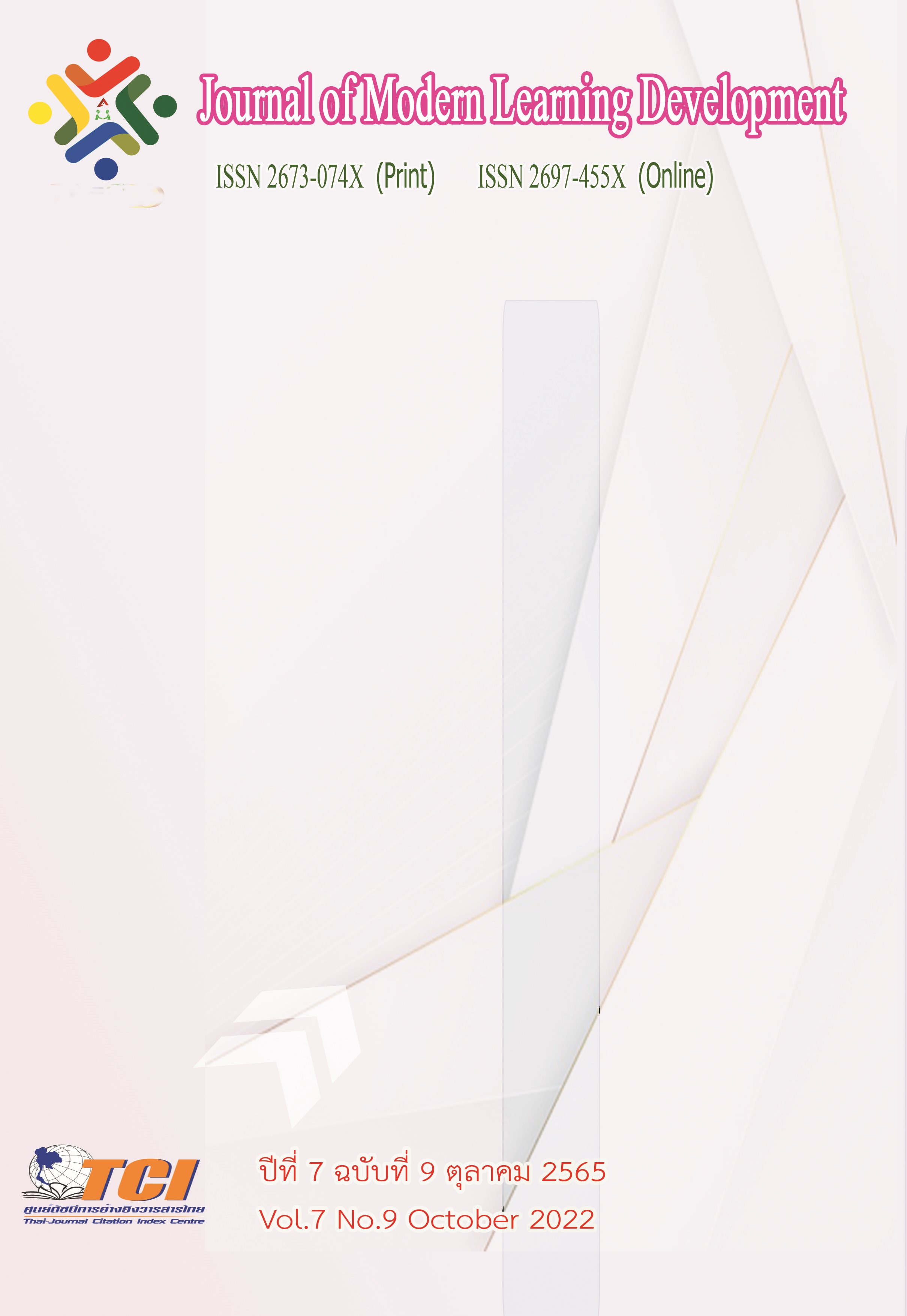Potential Development Affecting Accounting Teachers on Teaching Efficiency in the 21st Century Under the Office of Vocational Education Commission the Government Sector
Main Article Content
Abstract
The purpose of this research was to study the development of potential affect teaching efficiency in the 21st century of accounting teachers of the directorate of the vocational education commission, the government sector, with the sample groups were teachers in the accounting department. The directorate vocational education sector of government, this research was a quantitative research. The researcher used questionnaires to compile data of all 338 sets.
Analyze the data from the questionnaires, the researcher used the data for analyze by found the percentage, mean and standard deviation. A statistical used by package program and descriptive statistical methods for interpretation and presentation. The results of the study found that accounting teachers of the directorate of vocational education commission, the government had opinions on potential development that affects teaching efficiency in the 21st century, order to increase the potential of knowledge in the accounting profession. Professional accounting, skills accounting profession characteristics of accounting teachers at the highest level of accounting.
The hypothesis testing results revealed that the potential development of knowledge in the accounting professional accounting skills. Accounting Professions was a positive effect on teaching efficiency in the 21st century in terms of learning skills and innovation. The result had information skills and technology media, having life skills and the profession of an accountant teachers in the directorate office of vocational education commission. The government sector had a statistical significance at the 0.05 level.
Article Details
References
วิจารณ์ พานิช. (2555). ทักษะครูเพื่ิอศิษย์ไทยในศตวรรษที่ 21. กรุงเทพมหานคร: มูลนิธิสดศรี-สฤษดิ์วงศ์.
วรพจน์ วงศ์กิจรุ่งเรือง และอธิป จิตตฤกษ์. (2556). ทักษะแห่งอนาคตใหม่ : การศึกษาเพื่อศตวรรษที่ 21 แปลจาก 21st Century Skills: Rethinking How Students Learn. ออนไลน์. สืบค้นเมื่อ 10 กุมภาพันธ์ 2565. แหล่งที่มา: http://openworlds.in.th/books/21st-century-skills/.
วรางคณา ทองนพคุณ. (2556). ทักษะแห่งศตวรรษที่ 21 ความท้าทายในอนาคต = 21st Century Skills: The Challenges Ahead. ออนไลน์. สืบค้นเมื่อ 6 มกราคม 2565. แหล่งที่มา http://www. education.pkur.ac.
ดรุณนภา นาชัย. (2558). การพัฒนาแบบจำลองการสอนแบบผสมผสานโดยใช้สื่อที่สร้างสรรค์จากผู้เรียนและการจัดการเรียนรู้ แบบร่วมมือเพื่อฝึกทักษะการใช้เครื่องมือเทคโนโลยีการศึกษา. กรุงเทพมหานคร.
วศิน ชูชาติ. (2559). ปัจจัยที่ส่งผลต่อความสามารถในการจัดการเรียนรู้ของครูเพื่อส่งเสริมทักษะการเรียนรู้ของผู้เรียนแห่ง ศตวรรษที่ 21. จังหวัดสุพรรณบุรี
ปุณยา จันทมาตย์. (2558). การศึกษาทักษะการสอนของครูสังคมศึกษาเพื่อการเรียนรู้ในศตวรรษที่ 21 ในโรงเรียนมาตรฐานสากลระดับมัธยมศึกษา. กรุงเทพมหานคร
Sibel TüzelKandiller. (2015). From teacher to trainer: What changes? Or does it? Izmir: Izmir University
Dr. M. Skhephe. (2021). The Use of Technology in Accounting Classroom During COVID-19: What do Accounting Teachers in theEastern Cape, South Africa, Have to Say? Eastern Cape:


